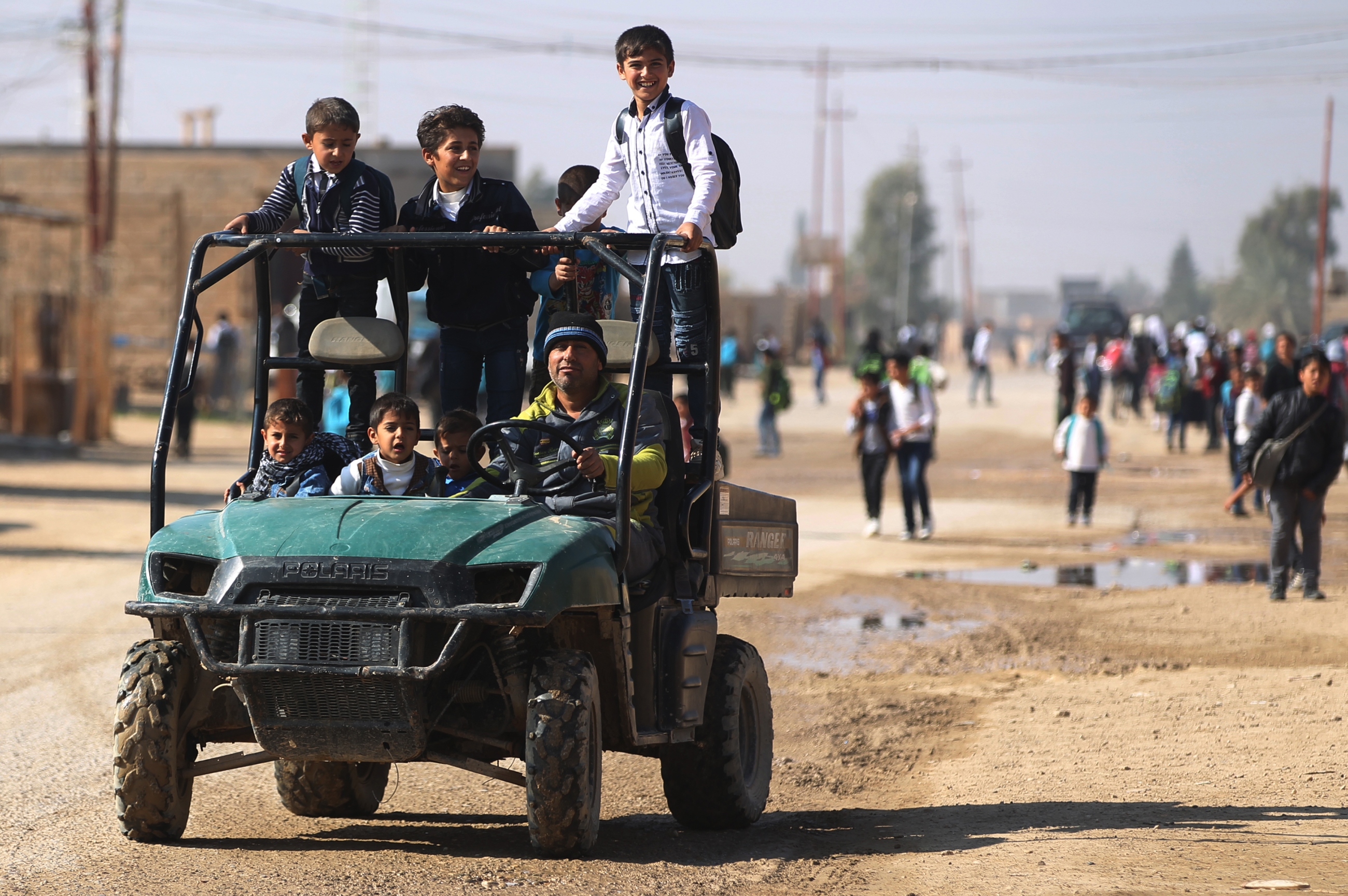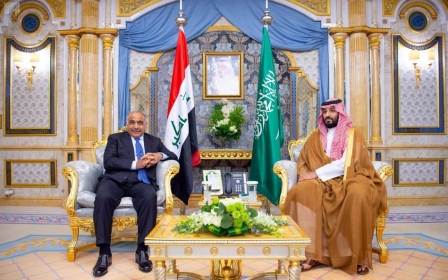Syria-Iraq border crossing opens for first time in seven years

A border crossing between Syria and Iraq has reopened for the first time since 2012 under Iraqi government control.
Iraqi forces had closed the al-Qaim border checkpoint with Syria with a three-metre concrete wall in August 2012 as Syrian rebels fought government forces on the Syrian side of the border. The crossing was captured by the Islamic State (IS) group in 2014.
The border crossing, on a vital highway linking the capitals of Iraq and Syria, reopened on Monday, an AFP reporter said.
Iraqi security forces retook the border post - near the towns of al-Qaim in Iraq and Albu Kamal in Syria - in late 2017 as part of a massive operation backed by an international coalition against the militants' self-proclaimed "caliphate".
Syrian Interior Minister Mohammad Khaled al-Rahmoun hailed the reopening as "the result of the two peoples' victory over any armed terrorist group, with IS in the lead".
Another crossing that was completely destroyed by fighting and the remaining passages along the huge border - mostly desert but also mountainous and therefore very difficult to control - are in the hands of Kurdish groups and their allies.
Sweeping through the region in 2014, capturing nearly a third of Iraq's territory and large swathes of Syria, IS militants set out to redraw the borders for their self-proclaimed "caliphate", seizing control of the porous border between the two countries.
Al-Qaim, in the far west of Iraq's Anbar desert province, which stretches to the edge of Baghdad, has long been a smuggling zone with tribes living on both sides.
On the other side of the border, Albu Kamal lies in the Syrian province of Deir Ezzor, where IS held its last square before the fall of its "caliphate" in March.
Middle East Eye propose une couverture et une analyse indépendantes et incomparables du Moyen-Orient, de l’Afrique du Nord et d’autres régions du monde. Pour en savoir plus sur la reprise de ce contenu et les frais qui s’appliquent, veuillez remplir ce formulaire [en anglais]. Pour en savoir plus sur MEE, cliquez ici [en anglais].





